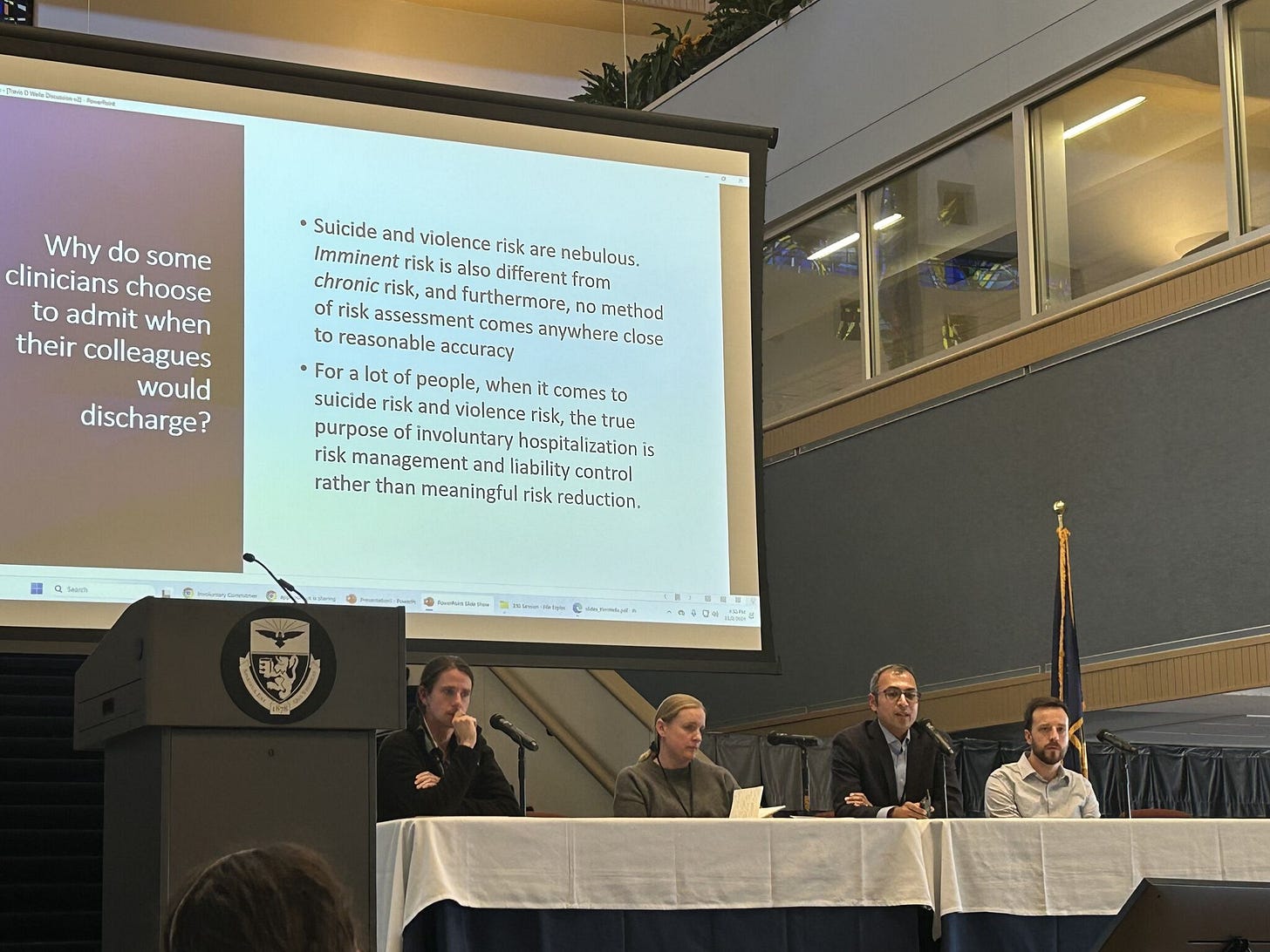Involuntary Psychiatric Hospitalization: A Substack Collection
I was at the International Society for Psychological and Social Approaches to Psychosis (ISPS)-US conference this Saturday in Pittsburgh, presenting as part of a panel on involuntary psychiatric commitment. The session was organized around new research from Pim Welle (Chief Data Scientist, Allegheny County Department of Health), whose team used administrative data from Allegheny County, Pennsylvania, and leveraged the quasi-random assignment of evaluating physicians in order to estimate causal effects of involuntary hospitalization on post-discharge death by suicide or overdose, violent crime, and employment. The methodology is quite rigorous, and the results are striking and provocative. For individuals whom some physicians would hospitalize but others would not, the team has found that hospitalization nearly doubles the probability of being charged with a violent crime or dying by suicide or overdose in the three months after evaluation. These findings will be published as a preprint at some point in the future, and I will discuss them in more detail on publication.
I suspect many new subscribers of this Substack over the weekend are folks who heard me talk at ISPS. So, for the benefit of recent subscribers, I am sharing this as a collection of previous posts on Psychiatry at the Margins that have dealt with issues around psychiatric commitment and hospitalization.
See also: my interviews with Kathleen Flaherty and Jim Gottstein for Psychiatric Times as part of the Conversations in Critical Psychiatry series.












Thank you for the shout out. I'm looking forward to seeing the study!